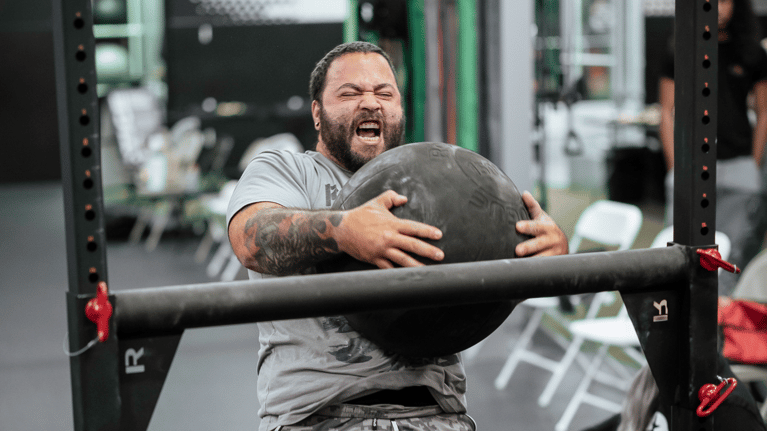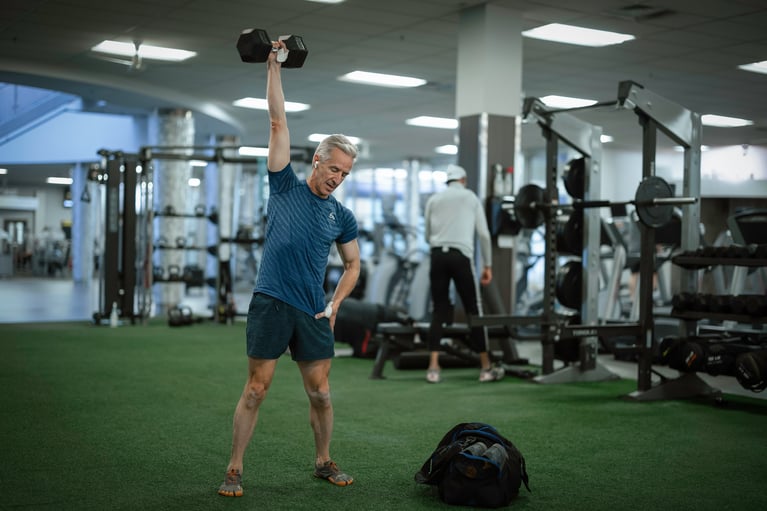
Food boredom has become a real issue for athletes and fitness enthusiasts.
The Problem
In order to support muscle growth, athletic performance, and recovery, substantial amounts of nutrient-dense foods are required. Eating an abundance of these clean foods each day can become boring and even a struggle. The routine of eating the same food cooked the same way every day also contributes to the problem.
Get Creative
Hard workouts require quality food and eating clean supports this very active lifestyle. It doesn’t mean we are doomed to a restricted diet of boiled fish and broccoli. In fact, it’s important to enjoy food intake as a successful part of sports nutrition. This means we want our healthy food to taste good.
Most athletes utilize nutrient timing and are eating lean protein, healthy carbs and fats every few hours. They have become creative in meal prep to vary the taste and texture of their meals. Implementing variety and different cooking methods have reduced food boredom among those who are eating for goals.
A Few Obstacles
According to an article published in the Journal of Nutrition Education and Behavior, people are lacking in cooking skills and food preparation. This has contributed to less cooking at home and lower diet quality.
The article further indicated “cooking interventions as a way to improve health.” A large-scale cooking initiative is known as “Cooking Matters” is being reviewed in 35 states. This initiative would create a program where local chefs through community outreach would teach cooking skills. Cooking programs like this would not only improve our health but provide the tools to vary meals and alleviate food boredom.
Lack of cooking skills is responsible for many athletes turning to the same nutrient-dense foods cooked simply. Unseasoned baked chicken, boiled vegetables, and eggs along with lumpy tasteless oats are typical in their diet. This daily routine can easily lead to food boredom and for some fitness enthusiasts a cause to throw in the towel.
Recommendations
According to the National Academy of Sports Medicine, it’s important to teach clients how to prepare flavorful healthier meals. The American Council on Exercise recommends using a mix and match tool to switch out our foods and avoid eating the same thing every day. The Academy of Nutrition and Dietetics suggests eating nutrient-dense foods several times per day for strength and recovery.
It appears the key to overcoming food boredom is preparing flavorful healthy meals and varying what we eat. Understanding the role clean eating plays in our muscle growth, strength and recovery are equally important. This knowledge and action will stimulate our want to continue to consume foods best for our body.
The Goal
Athletes and those performing challenging workouts regularly already understand the importance of consuming nutrient-dense foods. These include lean proteins, healthy carbohydrates, and fats also known as macronutrients. Intense workouts can require even more nutrients for optimal fitness.
The goal of this article is to educate you on cooking methods improving the taste and texture of these macronutrients to help alleviate food boredom.
Cooking Methods
Eating clean requires creative cooking methods to keep your diet interesting. Athletes tend to gravitate toward the same nutrient-dense foods and cooked the same way. However, if you prepare the same foods in different ways it will seem as if you’re eating something new each time:
Grilling outdoors is the most popular cooking method for athletes. It provides a robust flavor to meats, vegetables, and even some fruits.
Baking and roasting are another great way to enhance the flavor of nutrient-dense foods.
Stovetop sauté or stir-frying lean meats and healthy carbs can simply change up the food program.
Crockpot cooking is another fitness enthusiast preference for meal prep. Slow cooking meats, vegetables, and grains create amazing meals with fabulous flavor.
Avoid Routine
Consuming large amounts of healthy food to support muscle growth, athletic performance and recovery will benefit from variety. Food boredom can be alleviated by changing up what you eat per meal or consuming the same food prepared a different way. Swap out proteins, vegetables, grains, and fruits regularly to keep your meals interesting.
Tired of chicken? Enjoy lean turkey, salmon, lean beef, or scrambled eggs as alternate protein sources.
Eating too much broccoli? Substitute your vegetable with asparagus, green beans or Brussel sprouts.
Can’t stomach another apple? Try seasonal fruit like peaches, apricots, oranges or dates.
Dreading another spoonful of oatmeal? Change your grain and give quinoa, farro, or brown rice a try.
Flavor Essentials
Making nutrient-dense foods taste amazing is the goal for most athletes. Flavor essentials help achieve this objective and are great additions to spice up foods consumed in high volume. It’s also preferable to purchase organic, no added sugar, and reduced to no-sodium food enhancers. Although not considered strictly “clean”, the following additives are an acceptable and excellent way to prevent food boredom:
Marinades: Use vinegar and olive oil-based marinades to enhance flavor in lean meats, fish, and vegetables.
Vinegar: Enjoy a variety including balsamic, apple cider, rice wine, and herb-infused to improve the taste of meats, fish, vegetables, salads, and fruits.
Mustards: Liven up your meats, fish, and vegetables with plain mustard. Spice it up even more with Dijon, brown, or horseradish varieties. Any mustard makes a great dipping sauce!
Ketchup and hot sauce: Both provide an excellent kick to eggs, potatoes, meats, fish, and vegetables. Dunking roasted potatoes in ketchup is always a winner!
Tomato sauce and paste: Red sauces are a great way to enhance the flavor of meats, grains, and vegetables. Add seasoned tomato sauce to quinoa as an excellent pasta dish alternative.
Salsa: The most popular eat clean food enhancer. Salsa can be put on virtually anything from lean meats, cottage cheese, or used as a salad dressing.
Savory spices: Savory spices can include herb blends, Mrs. Dash, black pepper, sea salt, chili peppers, and cumin. These well-known favorites help season lean meats, eggs, and vegetables. They can also be added to marinades.
Eat Clean Recipes
- Sweet spices: Sweet spices can include cinnamon, oregano, and nutmeg. They are typically added to oatmeal, plain Greek yogurt, sprinkled on fresh fruit and used in healthy baking dishes.
- Herbs: Herbs are another great way to enhance the flavor of meats, grains, vegetables, and fruits. Popular herbs include fresh basil, cilantro, rosemary, thyme, and mint. Herbs are also wonderful in marinades. Add fresh mint to water for a refreshing drink!
- Extra virgin olive oil (EVOO): Olive oil is heart-healthy and tastes amazing on vegetables, salads, and fruits. It can be used as the base to most
meat and fish marinades. Olive oil can also be purchased infused with herbs enhancing the flavor of food even more. - Coconut oil: Coconut oil is a controversial healthy fat with amazing health benefits. Use it as a spread on whole-grain toast, prep vegetables or as a healthier fat alternative in baked goods.
- Extracts: Vanilla, almond, and lemon are among the most popular extracts used by athletes. Enhance the flavor of oats, cottage cheese or protein shakes with a few concentrated drops.
Overcoming food boredom means getting comfortable in the kitchen. Learning how to apply different cooking methods and seasonings will do more than enhance the flavor of your food. It will enable you to enjoy nutrient-dense foods and even eat the same thing several times per day without becoming bored.
Article by Darla Leal
Article contributed by amfam






